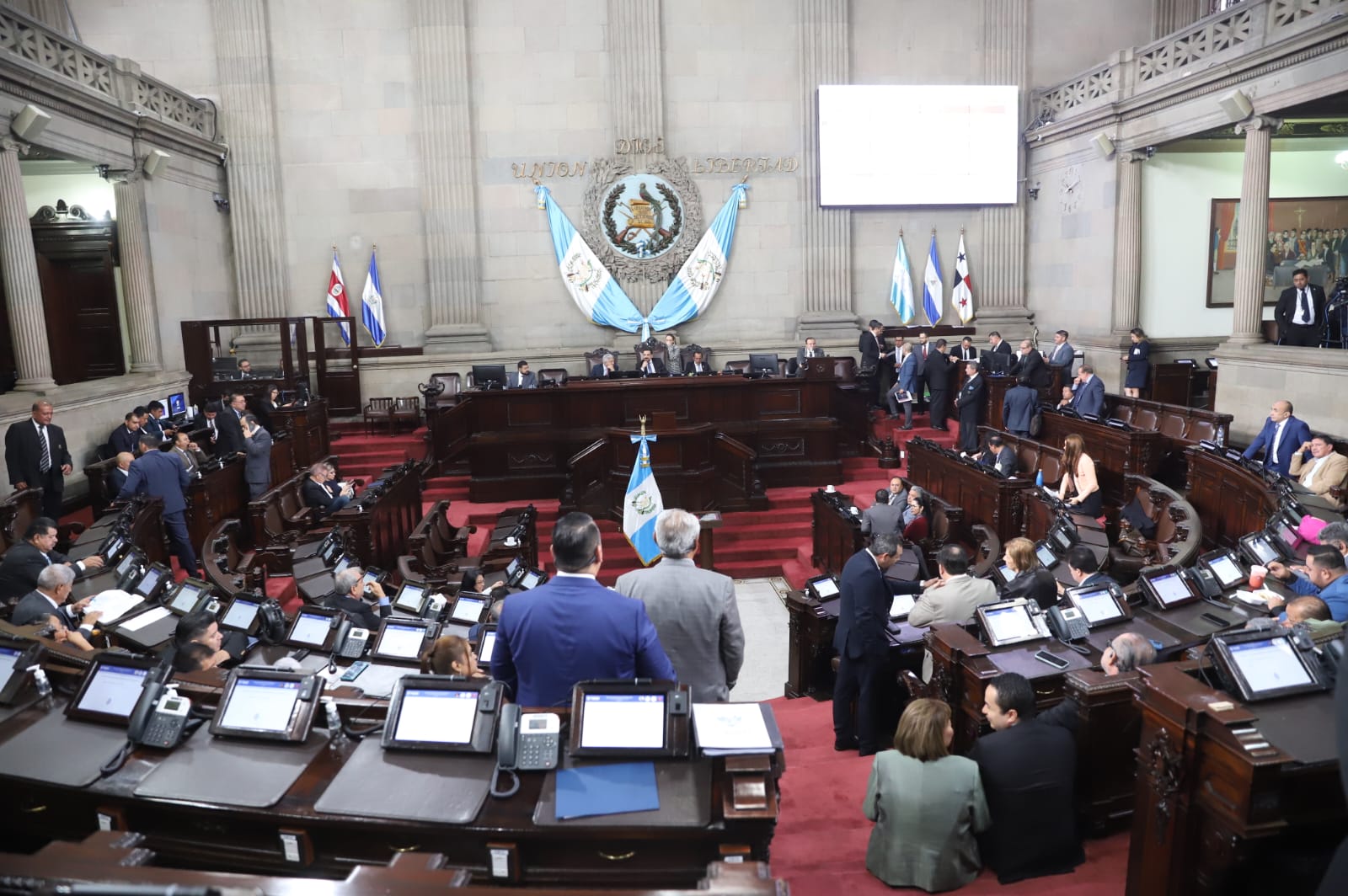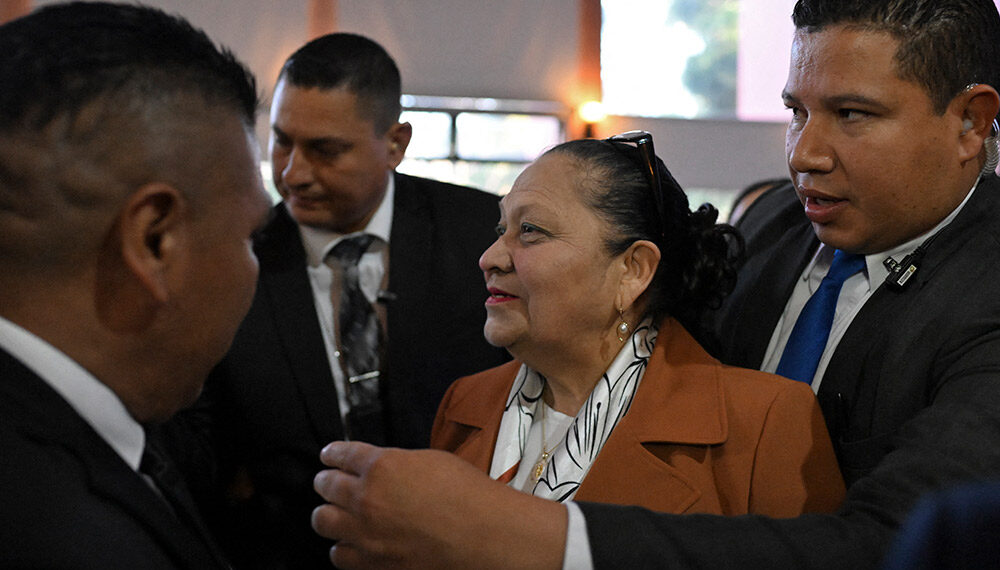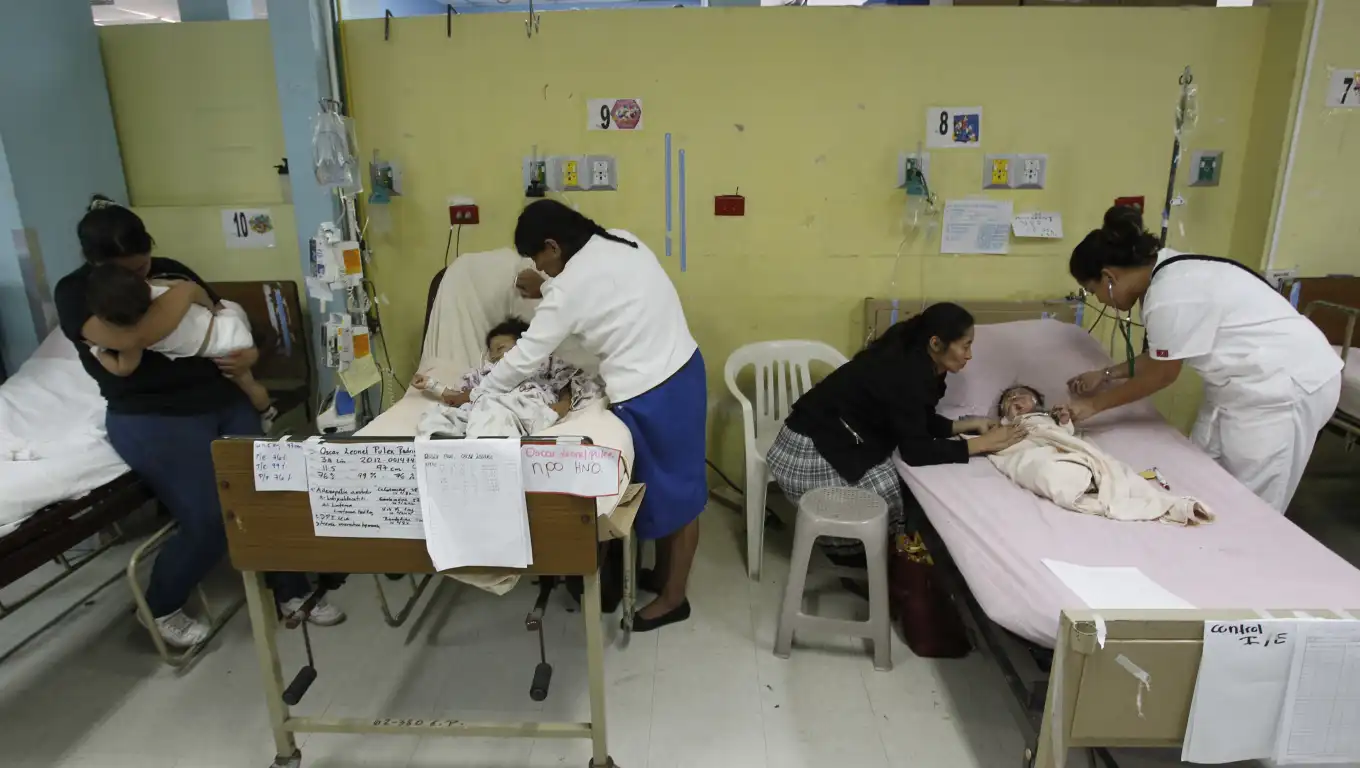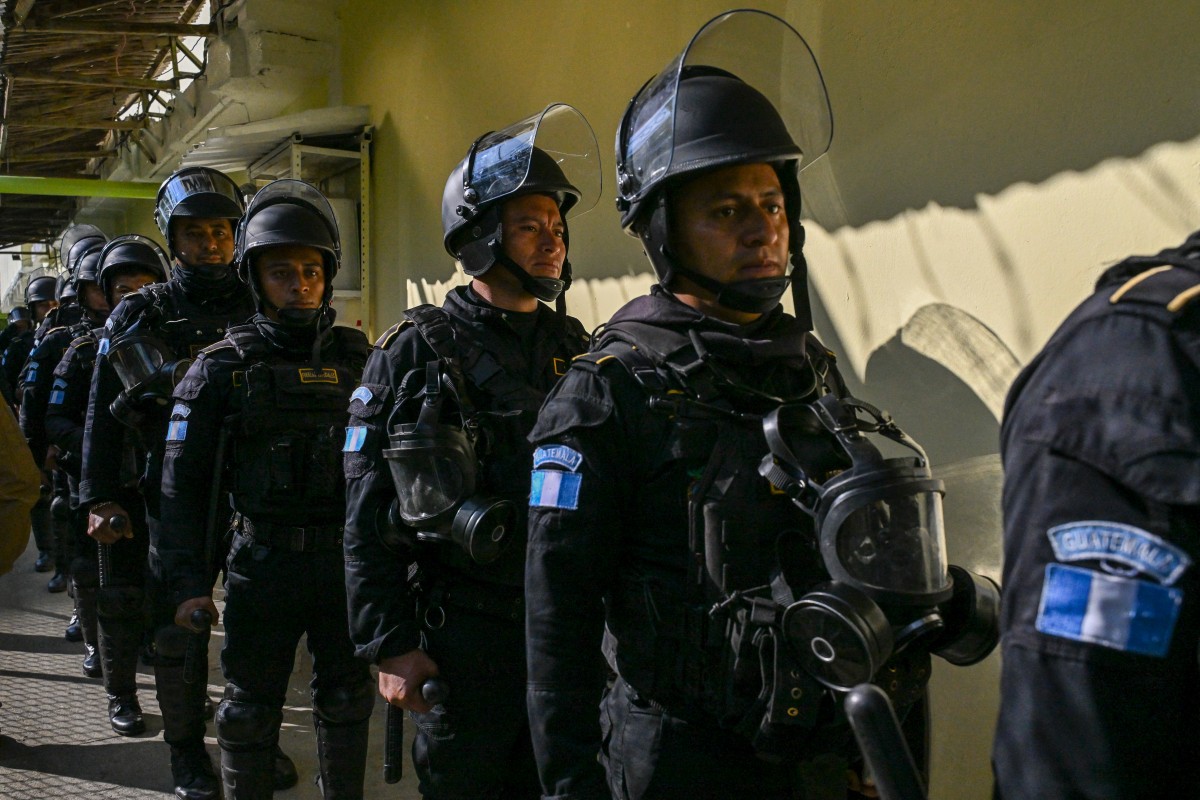Central America
Guatemala reform allows Semilla Party to be reinstated amid legal battle

The Guatemalan Congress reformed a law on Tuesday that will enable the political party Semilla, led by President Bernardo Arévalo, to be reinstated. The party had been suspended by a judge for alleged irregularities in its registration amidst a judicial offensive against the president.
The reform to the Law Against Organized Crime, supported by 127 out of 160 lawmakers, prevents a judge from suspending or canceling political parties, as had been stipulated under the previous law, said ruling party legislator Samuel Pérez.
In August 2023, after Arévalo unexpectedly advanced to the second round of elections, Judge Fredy Orellana, sanctioned by Washington for being considered “corrupt” and “undemocratic,” used this law to suspend Semilla’s legal status, allegedly for presenting false signatures in its 2017 registration.
The law allowed the provisional suspension of “the registrations of legal entities” when they had been used to commit an “illegal act,” which Orellana attributed to the alleged false signatures. However, legal experts argued that this case should have been handled by the electoral court.
The Public Prosecutor’s Office, led by Consuelo Porras, also sanctioned by the U.S., is leading an offensive against Arévalo and his party, which jeopardized the president’s inauguration in January.
In compliance with the judicial order issued by Orellana, the Supreme Electoral Tribunal disqualified Semilla on November 3 of the previous year.
The new reforms now establish that this law does not apply to political organizations, which are subject to the Electoral Law and Political Parties Law, not the criminal code.
“We are telling the coup plotters ‘no more legal tricks to persecute the political opposition,’” said ruling party congressman José Carlos Sanabria, referring to Orellana and Porras.
Central America
Guatemala’s president denounces MP raids during Constitutional Court election

The president of Guatemala, Bernardo Arévalo, on Thursday accused the Ministerio Público (MP) of interfering in the process to select magistrates for the country’s highest court, the Corte de Constitucionalidad (CC).
Arévalo has been locked in an ongoing dispute with Attorney General Consuelo Porras, who has been sanctioned by the United States and the European Union and labeled by critics as “corrupt” and “anti-democratic” after efforts to block the president from taking office two years ago.
Earlier on Thursday, the MP said it was investigating alleged irregularities in the voting process and carried out raids at polling sites set up at Club La Aurora and Parque Erick Barrondo, in Guatemala City, where the Colegio de Abogados y Notarios de Guatemala (CANG) was electing its principal and alternate representatives to the CC.
In posts on X, the president described the operation as a “spurious” action aimed at “interfering” in the election and “intimidating” voters in order to “alter” the outcome.
Voting was temporarily disrupted by the searches, the frisking of the CANG president, and a power outage caused by the explosion of a nearby transformer. Once the process resumed and concluded, the association elected Astrid Jeannette Lemus Rodríguez as one of the five members of the Constitutional Court, with Luis Fernando Bermejo Quiñónez chosen as her alternate.
“They failed in their attempt to hijack the elections (…). Honest lawyers won,” Arévalo wrote in a subsequent message.
Central America
Guatemala to Phase Out Longstanding Medical Cooperation Agreement with Cuba

Guatemala’s government announced on Tuesday that it will end this year a cooperation agreement with Cuba that has brought doctors from the Caribbean nation to work in the Central American country.
Guatemala’s Health Ministry told EFE that the program, which has been in place for nearly three decades, will be phased out progressively throughout 2026.
According to the same source, there are currently 412 Cubans in Guatemala under the agreement, including 333 physicians.
Cuban medical brigades assigned to Guatemala have traditionally been deployed to various regions of the country to provide primary health care to local communities.
“The decision follows a technical assessment aimed at strengthening the sustainability of the national workforce and consolidating the public health system’s own capacities,” the Guatemalan ministry said.
Earlier this week, lawmaker Sonia Gutiérrez, from the left-wing Winaq party, warned that the move “could be an inhumane act that threatens the health and lives of the country’s most vulnerable populations,” given the historic importance of Cuban doctors in providing medical care.
For that reason, the legislator summoned Health Ministry authorities to Congress, as permitted by law, to provide further details about the decision.
Former human rights ombudsman Jordán Rodas Andrade also weighed in on social media, recalling that “for 27 years Cuban doctors have been the backbone of health care in Guatemala’s most neglected areas,” and stressing that “ending this agreement is an act of ingratitude that leaves the most vulnerable unprotected.”
President Bernardo Arévalo’s government told EFE that, in order to guarantee continued care, it will implement a gradual replacement plan that includes hiring national personnel.
Central America
Guatemala isolates Barrio 18 leader after attacks that killed 11 police

Guatemalan authorities have placed a leader of the Barrio 18 gang in an isolated cell without الكهرباء or “privileges” after he was accused of triggering a recent wave of violence that left 11 police officers dead, the government said on Sunday.
Members of Barrio 18, which is designated as a “terrorist” organization by both the United States and Guatemala, carried out the killings on January 18 in retaliation for the government’s takeover of three prisons that had been under the control of inmates linked to the group.
In response to the attacks, President Bernardo Arévalo declared a month-long state of siege, arguing that gang members were seeking better conditions in prison or transfers to lower-security facilities.
In a message posted on X alongside photographs, Arévalo announced the isolation of Aldo Dupie, also known as “El Lobo,” one of the gang leaders who allegedly directed the uprisings.
Images released by the government show Dupie inside a small cell with narrow windows, built from metal containers, in a secured area of the Renovación I prison in southern Guatemala — the same facility where the hostage-taking riot took place.
With a shaved head and a stern expression, the gang leader appears alone and in handcuffs, according to the photographs.
Guatemala’s prison system said the “new area,” protected by metal fencing and barbed wire, will house high-risk inmates who will remain without privileges or electricity.
-

 International3 days ago
International3 days agoOver 50 Civil Groups Urge House to Impeach DHS Secretary Kristi Noem
-

 International5 days ago
International5 days agoU.S. Health Department says CDC grants no longer match agency priorities
-

 International5 days ago
International5 days agoICE Arrests Reach 379,000 Under Trump, Testimony Shows Amid Minnesota Shootings
-

 International5 days ago
International5 days agoDespite homicide drop, overall deadly violence remains high in Mexico: study
-

 Central America3 days ago
Central America3 days agoGuatemala to Phase Out Longstanding Medical Cooperation Agreement with Cuba
-

 International5 days ago
International5 days agoSheinbaum Urges Mexico to ‘Jealously’ Guard Sovereignty at Air Force Anniversary
-

 International5 days ago
International5 days agoJet Fuel Crisis Hits Cuba: Flights Disrupted, Air Canada Cancels Services
-

 International5 days ago
International5 days agoMEPs Approve Plan That Could Fast-Track Rejection of Some Asylum Claims
-

 International3 days ago
International3 days agoHead-of-state diplomacy key to guiding China–U.S. ties, Beijing says
-

 International3 days ago
International3 days agoNew York’s New Archbishop Names Óscar Romero as His Favorite Saint
-

 International3 days ago
International3 days agoFlorida judge sets 2027 trial in Trump’s $10 billion lawsuit against BBC
-

 International3 days ago
International3 days agoTrump administration to end special immigration operation in Minnesota
-

 International5 days ago
International5 days agoMexico Rises Slightly to 141st in Global Corruption Perceptions Index 2025
-

 International3 days ago
International3 days agoExclusive Tucson Neighborhood Shaken by Disappearance of Savannah Guthrie’s Mother
-

 Central America6 hours ago
Central America6 hours agoGuatemala’s president denounces MP raids during Constitutional Court election
-

 International5 days ago
International5 days agoChile Unveils Latam-GPT to Give Latin America Its Own AI Model


























